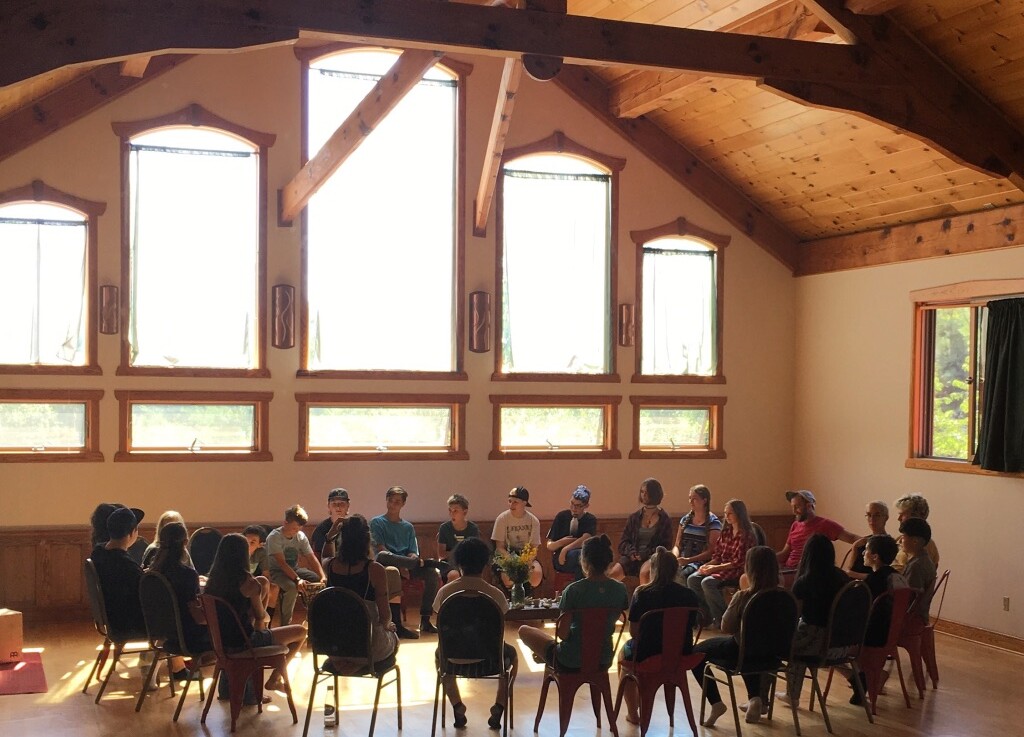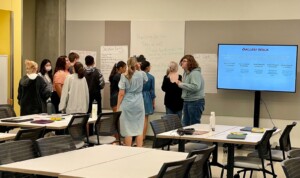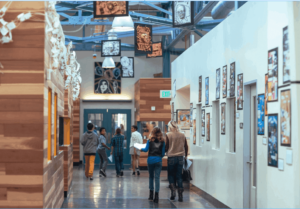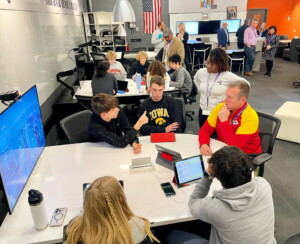The Role of Microschool Incubators: Nurturing the Future of Education
Key Points
-
By constantly evolving and being open to experimentation, incubators embody a mindset of growth and continuous improvement.
-
By prioritizing learner-centered approaches and embracing innovation, incubators are paving the way for a future where education is more adaptive, personalized, and relevant to the needs of modern learners.

Across the country, we’re seeing an emergence of new learning models that have been accelerated by rapid responses to the pandemic as well as shifting local and national policy. Our microschools campaign reflects our commitment to unpacking and highlighting this emerging landscape and amplifying the important work of the numerous education leaders working on this innovative edge. In our early research, we identified four unique categories in the microschooling landscape:
- Operators: Organizations that establish and oversee charter microschools, which may or may not have distinct school codes, and manage their day-to-day operations.
- Intermediaries: Often referred to as model providers, these are entities that build networks of affiliates, facilitating the establishment and support of various microschool models. These affiliates can include public school districts, nonprofit private schools (both new and converting), and homeschool parents.
- School within School/Part-time Programs: This group represents schools that are located within an existing school and often utilize the co-located school code. They often represent both full and part-time options and are sometimes referred to as programs. This group also represents part-time programs and pathways that operate across schools, districts, and even networks.
- Incubators: Incubators in the context of microschools, are mentor organizations or schools that offer established, comprehensive frameworks and resources to support individuals or groups looking to establish and operate their own microschools.
In the Fall of 2023, the A Big Push for Small Schools grant program launched and is focused on fostering a network of microschool leaders, by offering grants to propel the development of these innovative learning environments with an emphasis on operators looking to scale their high-quality models.
As part of our initiative, we launched a Community of Practice (CoP) to convene a group of dynamic microschool leaders and learning providers. In our first CoP, we chose to focus on the emerging category of microschool incubators. In this incubator CoP, the emphasis on open dialogue allowed for the exchange of innovative solutions and ideas. The diverse backgrounds and experiences of the participants fostered a solid foundation for collective learning. Through the exchange of ideas, perspectives, and innovative approaches, this dynamic group has contributed to further defining the microschool landscape.
In the dynamic landscape of modern education, incubators are emerging as pivotal players. These entities are not just supportive resources; they are the torchbearers of innovation and personalization in the educational sphere. Let’s delve into understanding the multifaceted role they play.
What are Microschool Incubators?
Incubators are specialized institutions or organizations that facilitate the creation, design, and development of microschools. These are small, community-focused educational settings that offer a personalized learning environment. Small, easy-to-pivot, responsive, and relational, microschools meet the need for learning environments to be ever-evolving to better empower the learners and families they serve.
Many incubators are birthed out of successful microschools or microschool networks. They model organic growth from within. Incubators are a backbone of support for many microschools, offering a range of services from sharing best practices to providing hands-on assistance in setting up new schools. Microschool incubators, however, are more than just support systems; they catalyze change in the educational sector. By prioritizing learner-centered approaches and embracing innovation, incubators are paving the way for a future where education is more adaptive, personalized, and relevant to the needs of modern learners.
Core Functions of Microschool Incubators
Our CoP identified the following areas as the core functions for incubators in the small school space:
- Resource and Best Practice Sharing: Incubators are repositories of knowledge and experience in the microschool arena. They guide curriculum design, teaching methodologies, and school management, ensuring that emerging microschools have access to tried and tested strategies.
- Flexibility in Approach: While the methods and strategies may vary, the core objective remains constant: to provide learner-centered education that aligns with successful graduate profiles. Incubators are flexible in their approach, their leaders reminding us that it is very important to understand that there is no one-size-fits-all solution in education.
- Human-Centered Design and Iteration: The concept of human-centered design is central to the philosophy of Incubators. This approach prioritizes the needs and experiences of learners, ensuring that educational models are constantly iterated upon to meet these needs better.
- Fostering Real-World Learning: Incubators emphasize learning that is grounded in real-world experiences and meaningful engagements. This approach ensures that education is not just about content delivery but about preparing learners for the challenges of the real world.
- Personalization and Learner Agency: Recognizing that each learner is unique, incubators advocate for personalized learning paths. They encourage microschools to provide learners with agency, allowing them to have a say in their learning process and to engage with content that resonates with their individual needs and interests.
- Responsiveness and Support: Incubators are known for their agility and responsiveness. Focused on the goal of helping microschools provide learners with agency, they quickly adapt to the needs of their clients and microschool families, students, and educators. Incubators do this by providing timely support and interventions to ensure the smooth functioning of these educational entities.
- Embracing Failure as a Learning Tool: A distinctive aspect of Incubators is their willingness to embrace failure as part of the learning and development process. By constantly evolving and being open to experimentation, they embody a mindset of growth and continuous improvement.
- Nurturing Innovation and Agility: Incubators are adept at nurturing innovative ideas and are equipped to pivot when necessary. This agility allows them to stay ahead in the ever-changing landscape of education.
- Belonging and Inclusion: At their very core, incubators are committed to fostering learning environments that thrive on the sociocultural, socioeconomic, and learning diversity of their respective communities. As such, a sense of belonging and commitment to inclusion are shared values for incubators.
Meet our Incubator Community
Here’s a brief snapshot of the organizations who contributed to the CoP, each bringing their unique backgrounds and experiences.
- The Institute of Self-Directed Learning is dedicated to reshaping traditional educational paradigms, empowering learners to become self-directed and independent. By fostering environments that encourage critical thinking, problem-solving, and freedom in learning, we aim to equip youth with the skills needed for success in an ever-evolving world. Of the many schools they’ve cultivated, The Forest School nurtures skills, habits, and mindsets for meaningful lives through innovative practices including place-based and experiential learning, flexibility, and community partnerships, creating a unique educational experience.
- La Paz Global serves as a visionary incubator for inclusive and innovative education, aiming to provide high-quality opportunities that cultivate global citizenship. With a focus on empathy, understanding, and critical thinking, La Paz Global envisions a future where learning communities prioritize collaboration, compassion, and knowledge, empowering individuals to contribute to a more equitable, just, and sustainable world.
- Mysa Microschool serves as an innovative incubator for modern education, employing research-informed teaching practices transferable to public schools. With a philosophy aligned with Montessori, Mysa embraces a place-based learning model, creating nurturing communities where students explore their strengths and contribute meaningfully to the world.
- One Stone goes beyond traditional education, serving as a dynamic incubator for student-driven innovation across 20 high schools in the Treasure Valley. Rooted in empathy and design thinking, One Stone empowers students to explore passions, enact real-world solutions, and revolutionize learning, fostering a generation of changemakers. Lab51, an urban microschool in Boise, ID, extends this innovative approach globally, emphasizing student-driven governance, competency-based learning, and a growth transcript to cultivate a mindset for meaningful work and global impact.
- On Track Academy & Pratt Academy, are pioneering choice high schools by Spokane Public Schools. With Pratt Core and Pratt North serving grades 9-12, the academy offers small class sizes, technology-based courses, and project-based learning. Focused on student-directed education and mentoring, Pratt Academy creates a supportive community, emphasizing restorative practices and individualized learning plans.
- Primer Microschools, located in Miami, FL, fosters creativity and independent thinking. Founded to free the next generation, Primer empowers educators to launch personalized, passion-driven microschools. The innovative practices of Primer include small-group settings, mixed-age learning, personalized learning supported by in-house technology, and a focus on goals over grades.
- Springhouse Community School, Nestled in rural Pilot, VA, Springhouse envisions a world where all life thrives. Founder Jenny Finn’s commitment to Sourced Education principles creates a transformative learning environment. Springhouse’s innovative practices include place-based learning, experiential education, and a focus on social justice, addressing the unique needs of each learner by building competence and confidence.
- Da Vinci RISE High is shaping the future as an aspiring incubator by providing a model that emphasizes project-based, real-world learning. Their collaboration with industry and higher education partners ensures a curriculum that prepares students for diverse pathways, aligning with the principles of microschools. Additionally, RISE’s small school environment fosters a sense of community and personalized learning, reflecting the microschool philosophy of individualized education within a supportive community.
Join the Microschool Movement: Stay Tuned for Our Next Community of Practice!
As we gear up to launch our next Community of Practice, a dynamic gathering of thought leaders, microschool innovators and learning providers, we encourage you to stay tuned for updates. Be the first to explore cutting-edge insights, exchange ideas, and contribute to the transformative dialogue within the microschool landscape. Your participation will elevate your educational initiatives and contribute to the collective growth of the microschool movement. Subscribe to our updates and drop Victoria an email to be included in our next CoP.







0 Comments
Leave a Comment
Your email address will not be published. All fields are required.